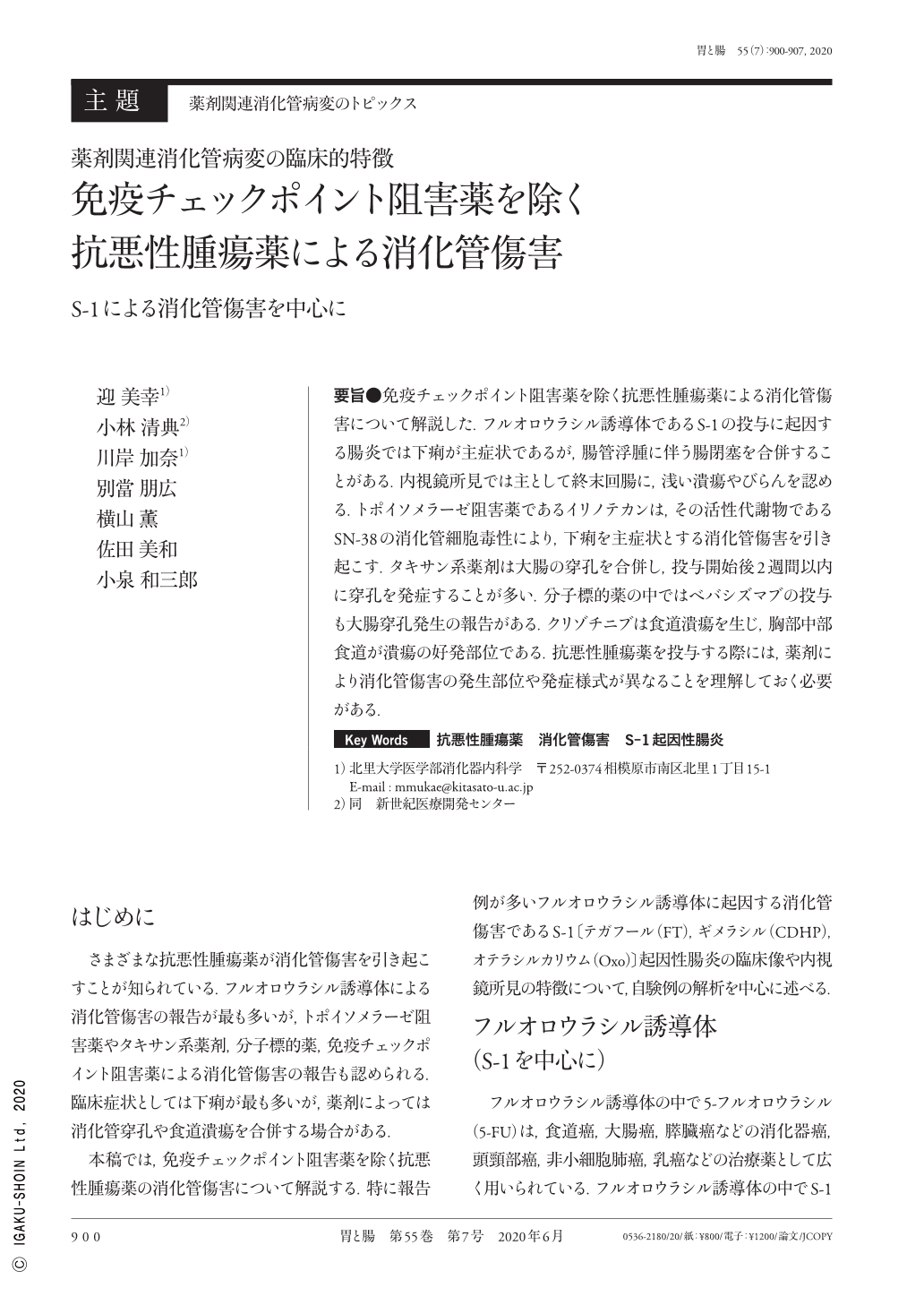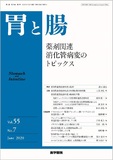Japanese
English
- 有料閲覧
- Abstract 文献概要
- 1ページ目 Look Inside
- 参考文献 Reference
要旨●免疫チェックポイント阻害薬を除く抗悪性腫瘍薬による消化管傷害について解説した.フルオロウラシル誘導体であるS-1の投与に起因する腸炎では下痢が主症状であるが,腸管浮腫に伴う腸閉塞を合併することがある.内視鏡所見では主として終末回腸に,浅い潰瘍やびらんを認める.トポイソメラーゼ阻害薬であるイリノテカンは,その活性代謝物であるSN-38の消化管細胞毒性により,下痢を主症状とする消化管傷害を引き起こす.タキサン系薬剤は大腸の穿孔を合併し,投与開始後2週間以内に穿孔を発症することが多い.分子標的薬の中ではベバシズマブの投与も大腸穿孔発生の報告がある.クリゾチニブは食道潰瘍を生じ,胸部中部食道が潰瘍の好発部位である.抗悪性腫瘍薬を投与する際には,薬剤により消化管傷害の発生部位や発症様式が異なることを理解しておく必要がある.
We herein discussed gastrointestinal damage caused by antineoplastic agents, except for immune checkpoint inhibitors. The administration of 5-fluorouracil derivative S-1 can cause intestinal inflammation with diarrhea as a prominent symptom ; this can be complicated by ileus with intestinal edema. On endoscopic assessment, the main findings are shallow ulcers and/or erosion in the terminal ileum. SN-38, an active metabolite of the topoisomerase inhibitor CPT-11(irinotecan), can cause gastrointestinal damage, also with diarrhea as a prominent symptom because of its gastrointestinal cytotoxicity. One complication of taxane therapy is perforation of the large intestine ; when this occurs, it is often within 2 weeks of the initiation of therapy. Perforation of the large intestine has also been reported with the molecularly targeted drug bevacizumab. Further, crizotinib can cause esophageal ulcers, frequently in the middle thoracic esophagus. Antineoplastic agents thus must be administered with caution because various drugs can cause several types of gastrointestinal damage in different locations.

Copyright © 2020, Igaku-Shoin Ltd. All rights reserved.


